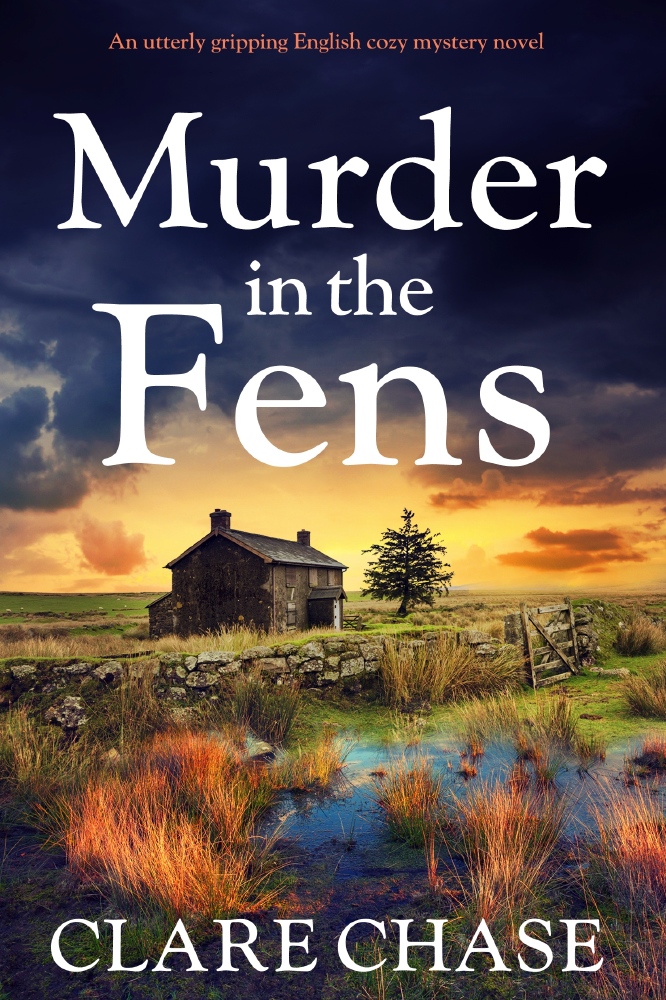A library full of books
I do most of my research online, and it’s usually very targeted. It’s great for quick answers, and can lead further. However, it’s often the books I use for background reading that throw up unexpected information and spark new ideas. For my current police procedural series, Blackstone’s Senior Investigating Officers’ Handbook (a UK training manual) and the Royal Society of Chemistry’s Crime Scene to Court (a forensics book), have been fantastic eye-openers.

Murder in the Fens
Expert help
I’ve received fascinating advice from police and fire forensics professionals. The chance to talk and bounce ideas around is another thing that’s sparked new story leads. Connecting with other writers also comes into this category: people share their knowledge so generously. Writer podcasts are great too.
PowerPoint – for plotting
A geeky one – but I love PowerPoint when I’m outlining. I include a slide for each new development/interview/clue. I like the fact that you can add a plot point as a place holder, then drag the slides around in ‘slide sorter’ view, once you firm up the order of events. It means it’s easy to move from the idea-dump to structured stage.
My Kindle – for editing
I do my first set of edits on my laptop, but once I’ve pulled my story roughly into shape I swap to Kindle. I find I see mistakes more easily, reading the book in a different format, and I can use the ‘notes’ function to mark up changes as I go.
Word cloud generator – for positioning
Soon after I started out, I wanted to pinpoint where my books sat in the crime genre, so I could describe them accurately to readers and publishers. This is embarrassingly geeky, but I ended up putting a whole bunch of reviews into an online word cloud generator to see how people described my novels. (The results were clear: my books fall into the cosier end of the genre, with the emphasis on the mystery, the clues and the characters.)
The great outdoors
Both for physical and mental health and for taking time out to plot new stories, getting outside – walking, running or whatever – is very important to me, especially now I no longer have a day job that forces me to leave the house!
The internet
An obvious one, but the information I’ve found during my research has been amazing. There’s so much on police procedure, forensics, personal case studies, crime reports, legal stuff and more. I love YouTube too, for help with describing settings. Although I visit the places I write about, finding a film of the location, and hearing its soundscape, jogs my memory.
Fingerless gloves
I live and work in a draughty old house, which seems to remain porous, however much insulation and additional glazing we add. In winter, the gloves make a big difference when I’m at the keyboard.
A bathroom that needs cleaning
For some reason, mindless chores always get my ideas flowing when I’m stuck on a plot point. The downside is, the chores never get finished. I zoom back to my computer as soon as inspiration strikes...
Comedies before bedtime
After a day focused on dark deeds, reading or watching something light-hearted is a great antidote. I also love crime fiction that includes a bit of witty banter, so I think I can count it as research!
MORE: 10 Things I'd like my readers to know about me by Clare Chase

